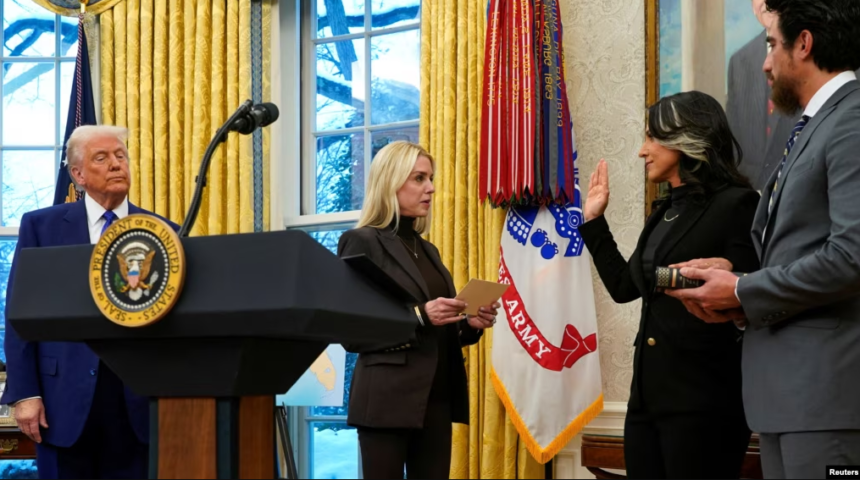Former congresswoman Tulsi Gabbard was confirmed on Wednesday as the new Director of National Intelligence (DNI) after a party-line vote in the U.S. Senate. Backed by all but one Republican senator, Gabbard secured the position with a 52-48 vote, solidifying another key appointment for President Donald Trump.
As the head of the U.S. intelligence community, Gabbard will oversee 18 federal agencies tasked with counterintelligence and national security operations.
A Controversial Appointment
Gabbard’s nomination faced strong opposition from Democrats and some national security experts due to her lack of direct experience in intelligence and her past remarks viewed as sympathetic toward U.S. adversaries. During her tenure as a Democratic congresswoman, she never served on the House Intelligence Committee nor worked for any intelligence agency.
Despite these concerns, she pledged to restore public trust in the intelligence community, which she argued has been tainted by political bias.
“The American people have little faith in the intelligence community, largely because of its politicization,” Gabbard said shortly after taking the oath of office in the White House’s Oval Office. “I am honored to serve in this administration and help rebuild that trust while ensuring the safety of our nation.”
GOP Divided, McConnell Opposes
While Senate Republicans largely supported Gabbard, former Majority Leader Mitch McConnell broke ranks, joining Democrats in opposing her confirmation.
Experts highlight the significance of the DNI role, which was created after the 9/11 attacks to coordinate intelligence efforts across federal agencies.
“Tulsi Gabbard will now have access to the most classified intelligence materials and serve as the President’s top intelligence adviser,” said Emily Harding, director of intelligence programs at the Center for Strategic and International Studies (CSIS).
Gabbard’s appointment marks a turning point for Trump’s administration as it continues reshaping national security leadership.







